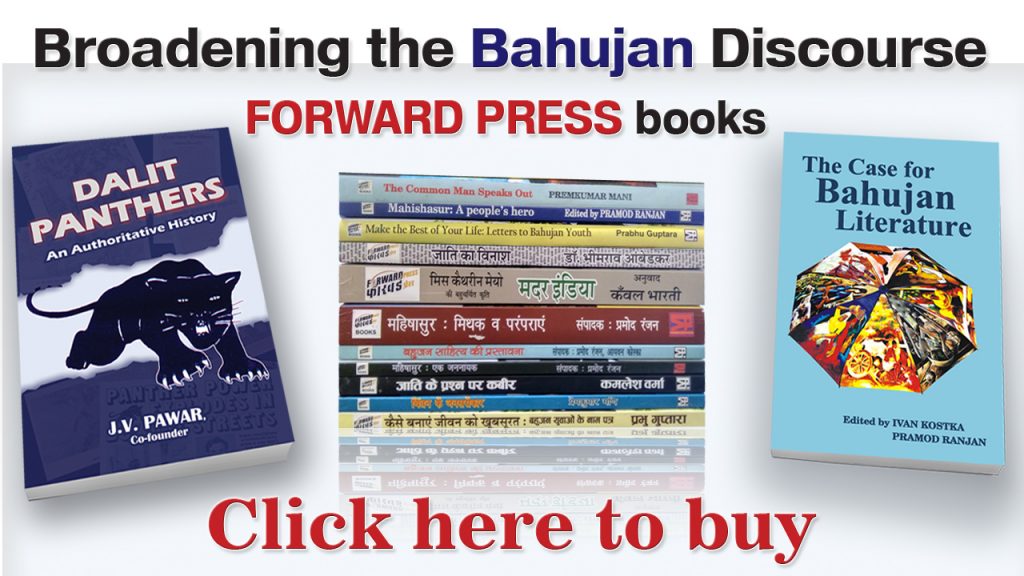Social change and social justice are two distinct concepts. Social change involves replacing the system based on injustice and exploitation with a socialist order. That is why almost all the proponents of an equitable society have voiced the slogan of social change. In his early days, Kanshi Ram also talked about social change. But the status quoists countered it with the slogan of social justice, which Vishwanath Pratap Singh introduced into Indian politics.
The movement for social justice strives to secure justice for the people within the present system. Welfare schemes and reservations for the poor and the weaker sections are some of the ways of bringing about social justice. But the Rashtriya Swayamsevak Sangh (RSS) and the Bharatiya Janata Party (BJP) always have had a deep dislike for the concept of social justice. So, they coined the slogan of “Samajik Samrasta” (Social harmony), which entails all sections of the people doing without demur the work assigned to them by the Varna system. That is why the RSS and the BJP are not particularly enamoured of the idea of nationalization of education, health and other public facilities and do not approve of reservations for the Dalits and the OBCs.
When Kanshi Ram joined hands with the RSS-BJP, he changed his slogan, too. He threw social change out of the window and mounted the juggernaut of the politics of social justice. When he started holding caste conclaves, his politics of partnership became such a hit that soon Chamars, Pasis, Valmikis, Khatiks, Mauryas-Shakyas-Kushwahas, Prajapatis, Kurmis-Jats and other caste groups launched their own brands of politics. This was how the politics of identity was born. Of course, the Brahmins were the pioneers of the idea of assigning communities with distinct social identities. They named each caste identity and prescribed janeyus of different colours, tilaks of different shapes, different ways of dressing, places of residence, languages, occupations and even different norms of justice for the different castes. It would not be wrong to say that it was this policy of division that gave birth to the politics of division – and this division is at the root of the RSS-BJP’s “Samajik Samrasta”.
The path of social reform is difficult. But it is not impossible to traverse. Everything depends on how aware the people are. If the people are not aware it is because their leaders are not aware. Then, can we presume that the neglected communities have no option but to battle within the confines of the system using democratic means? There may be more than 4,000 such communities. Can all of them get a share in power?

As far as the share of the neglected communities is concerned, it seems to be more about the emancipation of their leaders and less about the people. Swami Prasad Maurya, who was once a prominent Bahujan Samaj Party (BSP) face in the struggle for freeing the backward classes from Brahmanism, is a case in point. Initially, he was with Kanshi Ram and was appointed a minister in all the governments helmed by the BSP. Yet his community continues to be as neglected as ever. But Swami Prasad Maurya and his family have attained emancipation. As soon as the BSP started losing steam, he began bargaining with the BJP and ensured the emancipation of not only himself but also of his daughter. He sold the votes of his community to pay for his emancipation. After all, Maurya was inconsequential for the BJP as an individual but valuable as the vendor of the votes of the community. The lack of awareness among the people enables their leaders to use them to serve their own interests. Even as the people fight for their rights, their leaders build palaces for themselves. They are so engrossed in feathering their own nests that they don’t have the time to cast a glance at the pains and the miseries of their people. Keshav Prasad Maurya is one such leader. He is a deputy chief minister in the Yogi government but he doesn’t have the power to take any decision for the upliftment of his community. The Maurya duo have made their community a part of the Hindutva brigade for their own benefit and emancipation. They were unconcerned that the BJP’s Hindutva and its idea of Samajik Samrasta didn’t afford any opportunity to the Backwards to progress. It was the BJP and the RSS that had launched an agitation against the implementation of the Mandal Commission’s recommendations and had engineered attacks by Savarnas on the hostels of Dalit students.
Apna Dal leader Anupriya Patel is a bird of the same feather, so was Ramvilas Paswan and so is his worthy son Chirag Paswan. Chirag’s uncle Pashupati Kumar Paras stuck to the same script, leaving Chirag in a limbo. Chirag didn’t get along with Nitish Kumar and had described himself as Modi’s Hanuman. Had he, instead, been loyal to his community, given an ideological base to his party and boosted its following among the Dalits, he would have made history.
Udit Raj is another member of the same tribe. He merged his party with the BJP for his own emancipation. The BJP made him an MP but when he started speaking his mind on issues pertaining to Dalits, the party threw him out. BJP needs only such Dalits and OBCs, who, like Gandhi’s “three monkeys”, keep their eyes, ears and mouth shut. The BJP found an alternative to Udit Raj who fitted the bill. Udit Raj ended up a fool – having lost his party in his enthusiasm for becoming an MP.
Dalit and OBC leaders could not grasp the import of the game of Maha Dalit and Maha Pichhda played by the BJP. Very astutely, the BJP spread the word that all the benefits of the reservation system were being cornered by the forward Dalits-OBCs and that was hindering the progress of other Dalit and OBC castes. Soon, the political space was teeming with innumerable leaders of the Maha Dalit and Maha Pichhda castes, who began dancing to the tune of the BJP and started doing the politics of separate reservation quotas for their castes. The most deluded among these castes was the Valmiki (Mehtar) community. Overnight, a host of leaders emerged, who began supporting the BJP on the issue of separate reservation quota for the community. The party turned many of them into its pets. Baban Rawat is one of them. He began implementing the BJP agenda among the sanitation workers of Bihar with great alacrity. The BJP rewarded him with the vice-chairmanship of the Safai Karmachari Aayog. That opened the doors for his emancipation, which was what Rawat wanted. But were any problems faced by the sanitation workers or the Valmiki community resolved courtesy of Rawat? Did he ensure that the contract system, the institutional mechanism for their cruel exploitation, was discarded? Did he ensure that those who die cleaning sewers got relief? Did the community get the promised separate reservation quota? Did the party come up with a programme for their educational development? These are the questions Baban Rawat and others of his ilk like to duck. For, if they will open their mouths, they will make their loyalty to their community known and that is not something the BJP would put up with.
Take Lalji Nirmal in Lucknow. He became an ardent devotee of Yogi Adityanath for his own emancipation. He publicly hailed Yogi as a friend of the Dalits. As a quid pro quo he was appointed the chairman of the Anusuchit Jati Vitt-Vikas Nigam. Now, his lips are firmly sealed. The problems faced by the Dalits are no longer his priority. The day they become his priority, he will be on his way out.
The latest example of this crop of leaders is Dr Sanjay Nishad, president of Nirbal Shoshit Hamara Apna Dal (Nishad Party). He is ready to sell the votes of his community to the BJP, his only condition being that when the BJP forms its next state government, he should be made a deputy chief minister. Development and progress of his Nishad community was not his bargaining chip. He only wanted his emancipation. Such individuals can strike any deal with anyone, provided they themselves are its principal beneficiaries.
They sell the support of their communities in the name of social justice. They unashamedly indulge in the politics of keeping the autumn away from their own lives and ushering in the spring. Theirs is actually the politics of partnership in the loot, in which they back an exploitative regime in the name of social justice. This is not politics of ending the status quo. Rather, this is the politics of perpetuating the status quo. Their communities are the fodder that the exploitative classes use to build a bright, prosperous and happy future for themselves.
(Translation: Amrish Herdenia; copy-editing: Anil)
Forward Press also publishes books on Bahujan issues. Forward Press Books sheds light on the widespread problems as well as the finer aspects of Bahujan (Dalit, OBC, Adivasi, Nomadic, Pasmanda) society, culture, literature and politics. Contact us for a list of FP Books’ titles and to order. Mobile: +917827427311, Email: info@forwardmagazine.in)
The titles from Forward Press Books are also available on Kindle and these e-books cost less than their print versions. Browse and buy:
The Case for Bahujan Literature
Dalit Panthers: An Authoritative History







